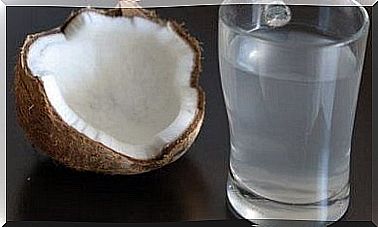Parenting Styles: Which Parents Are We?

Parenting styles are relational constructs involving behaviors, gestures, verbal and paraverbal messages of parents towards their children; but also the communication techniques and tactics used to educate them, whether they are conscious and voluntary or not.
No institution teaches to become parents, this role is learned on the basis of the education received and is characterized by actions and corrections that the parents consider adequate. The family of origin therefore represents the reference model for the education of children.
Nonetheless, parents are also the mirror in which their children look at themselves. In other words, the various parenting styles convey a specific message. Parents are more transparent than they think: they transmit values, beliefs, emotional expressions, communication styles, etc.

What kind of parent am I?
One of the best-known theories on parenting styles was developed by psychologist Diana Baumrind. This scholar has classified four categories:
- Authoritarians : they order their children what to do.
- Permissive : They let their children do what they want.
- Democrats : they provide norms and directions without becoming bullying.
- Negligent : They do not consider their children and focus their interests on other aspects of their life.
Democratic parents
They are balanced parents who maintain constant and open communication in which dialogue is the best tool to educate their children.
They are demanding and receptive and want to make their children independent and mature. On top of that, they take their children’s feelings into account and teach them how to handle them.
They generally do not control too much, which allows the child to venture into their experiences with greater freedom, making their own decisions based on their own ideas.
These parents, supporters of their children’s personal initiative, let them solve the problems of everyday life on their own. And this translates into greater autonomy.
When they decide to punish their children, they always explain the reason for the punishment which is usually measured, not too severe and not at all arbitrary. Being prone to forgiveness, they always try to teach rather than punish. This presupposes a greater self-esteem on the part of children, who learn to become more and more autonomous.
They propose clear rules and set limits lovingly. They also allow their children to develop their independence and expect mature behavior from them, but still suitable for their age.
Authoritarians
They are hyper-demanding, non-receptive parents and have high expectations for their children. They impose a totalitarian regime characterized by extreme respect for family norms; open dialogue between parents and children is lacking, especially when it comes to questioning an order.
Parents who are strict and prone to punishment when their impositions are not respected. They also demand respect for their work and effort in the role of educators.
They do not facilitate dialogue and sometimes reject it as a disciplinary measure. For example: “Don’t talk to me until you do what I tell you.” Often the only explanation they give is “because I say so”.
They are less sensitive to their children’s needs and more likely to hit or yell at the child rather than discuss the problem. Children raised in this area may have fewer social skills, as parental orders limit their free initiative.
These parents exercise discipline without granting the slightest autonomy to their children and consider obedience as a virtue, therefore they favor punishments and measures of force.
Permissive
They are parents who are very sensitive to their children’s needs and wants and have low expectations of their behavior. It is a parenting style that sees them involved in the lives of their children, but at the same time devoid of needs and control. The absence of limits, however, prevents children from acquiring the necessary self-control skills.
They tend to be immature, hardly know how to control impulses and be socially responsible; they are generally more impulsive and become isolated during adolescence. Children do not learn to control their own behavior and always expect to get away with it.

Negligent
They are neither demanding nor flexible. They are also called non-involved, as they are cold and distant from their children’s lives. They do not expect or set limits, let alone induce them to assume their responsibilities.
Negligent parents often neglect their children’s emotions and opinions and do not support them, rather they meet their basic needs (housing, education, food). They are often emotionally absent and sometimes even physically; that is, even if present, there is no communication.
They are not or cannot be sensitive to the needs of their children and have no expectations of their conduct. Children raised in a neglectful environment in adulthood can exhibit emotional and behavioral disturbances.
Lack of affection and advice has extremely negative effects on their development. They risk feeling insecure, devalued and dependent. They have socialization difficulties and a low frustration tolerance.
Specific types of parenting styles
The psychologist Mario Ceberio, in his work with adolescents, found a series of parental peculiarities in the interviews with the parents of the boys.
He claims that there are no pure parenting styles, but more often they are combinations that impart a particular distortion of parenting. Based on Baumrind’s ranking, it highlights some types of parenting.
- Guilty : They are parents who feel guilty when they impose limits. They seek the recognition and love of their children and believe that saying NO can generate rejection.
- Demanding : they stimulate children who are aware of their qualities, value them and motivate them.
- Highly demanding : they tend to emphasize the results that have not been achieved. They do not value what has been done, but only what has not been done. In other words, they belittle them.
- Authoritarians : they are dictators who do not explain the reason for their limits and orders. It is not what the children want is important, but what they think is best for them.
- Adequate limiters : Parents who set effective, clear, flexible and well-explained boundaries.
- Hyper donors : mothers and fathers convinced that giving and satisfying all needs ensures the optimal growth of their children.
- Always permissive : they always please their children and do not put a brake on their ideas. There are no limits. They tend not to lead them and end up being overwhelmed by their own children.
- Employees : They need the affection and recognition of their children, they try to please them and be appreciated. They are convinced that the only safe place for them is home.
- Overprotective Nails : They take extreme care of their children, not encouraging them to become independent They fear that something might happen to them, so they do everything for them.
Additional parenting styles
- Projective : They pour their frustrated desires onto their children. They unload on their children what they have not been able to achieve in their life. They don’t listen to their wishes.
- Donors : They are parents who guide their children. They provide advice, but they leave them the freedom to live their experiences freely. They can also do it materially, but only as a springboard to independence. They know how to let them go.
- Almighty : they can do everything. They give their children everything they need and more. They are convinced that pocket money, car and various gifts are the best tools to educate.
- Communicators : prioritize communication, implicitly explaining what it means to be a family. They never push, but they always respect the times. They ask and avoid assuming.
- Concessive : they stimulate freedom and independence, sometimes even too much without considering the real emotional abilities or degree of maturity of the children.
- Enhancers : They are emotionally nourishing. They express affection and appreciation with words and deeds.

Lethal combinations of parenting styles
- Permissive and omnipotent : they stimulate the freedom of children without measures and also satisfy all their needs and do not let them grow. They buy or rent an apartment in which they can live alone, but they pay all the expenses. They tend to deceive their children, as they stimulate them to independence, but at the same time they satisfy their every need.
- The good and the bad : on the one hand an authoritarian parent and on the other a guilty one. The one that sets extreme, rigid limits, orders and punishments. And the other that covers, protects and justifies. It is a triangle that favors the coalition.
- Permissive guilty : They do not allow unlimited actions and do not feel guilty about establishing them, which is why they inexorably end up being the children of their own children. An inverse hierarchy is established: dominant children and submissive parents.
- Highly demanding projects : Not only do they not recognize the wishes and aspirations of their children, but they are also hyper demanding, ignoring the wishes and abilities of their children. Generally they tend to point out the shortcomings, using the parameters of the protection. If you add authority to this, the scenario is even more burdensome.
A nourishing and functional parenting promotes growth, autonomy, communication, emotional expressions and clarity of limits. Therefore, it brings together the following parenting styles: enhancers + affective donors + demanding productive + adequate limiting + communicators.
Far from an ideal vision of parenting and more oriented to a healthy and functional role, exercising an optimal parenting style consists in learning the beautiful task of being a parent every day.









